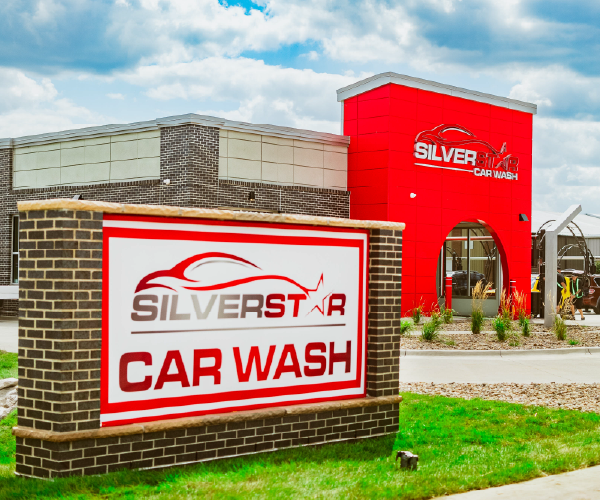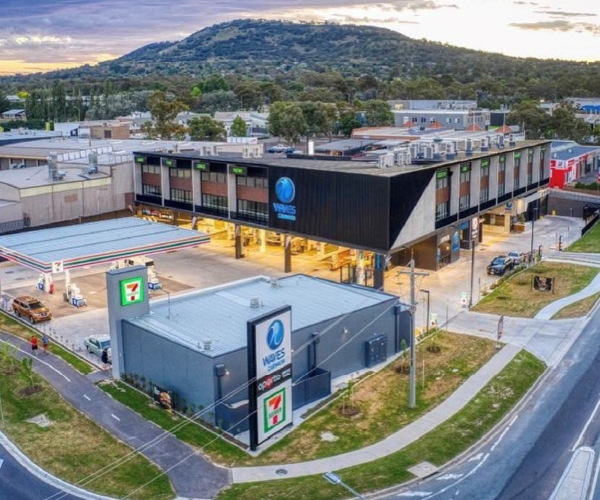
Getting Back MORE Than You Put In
October 1, 2012
5 minute ReadWHEN LAURA CRUZ became manager of a Dogtopia shop in Herndon, Va., her mission was to get involved in as many community events as possible.
“I always tried to be pleasant whenever I got someone on the phone,” Cruz said. “For every 10 phone calls I made, I might get one back. And for every 10 of those I got back, one might develop into a good partnership. You have to really want to get your name out there. You never know where it will lead.”
For Cruz, it translated to a record-setting first year of sales, which led to a promotion to community ambassador in Dogtopia’s corporate offices. During her year in Herndon, a suburb of Washington, D.C., Cruz went to career fairs, elementary schools and public safety days.
From large multinational corporations to mom-and-pops on Main Street, giving time and dollars to others pays dividends down the road. According to Canadian Business for Social Responsibility, giving time and dollars to others gives long term benefits for companies through brand reputation, building strong communities that support business interests, employee recruitment and retention and building social capital and support among citizens and government.
“If it was free, I would be there,” Cruz said. “I was working on a shoestring budget. I always tried to approach it from the aspect of ‘what can I do for you?’ without asking for anything in return. They were able to get to know my business for one, and I found that people would respond by saying ‘Oh, I’d love to do this for you.’ ”
Fund-raisers
Car wash owners have found success with unique charitable endeavors. Jeff Gold, owner of Buckmans Car Wash in Rochester, N.Y., oversees a “penny power” fund project that has raised $70,000 for children’s charities in the area since its inception if 1997. In the project, car wash customers are asked to donate back their penny change. Prices for car wash services are adjusted with tax to end with .97 or .98 to encourage customers to give back extra pennies.
“I would say 99 percent of the people are happy to donate,” Gold said. “You always have a few that may have had a bad experience with a charitable organization so once in a while you get someone who doesn’t want to donate. Very, very seldom.”
“Customers appreciate the program, they support the program and donate extra. Some people will give us a little bag of pennies, or a little bag of change and say put this in, and obviously we put it in there and we give it to the three (children’s) charities that we’re supporting.”
With six locations in the greater Rochester area, Gold said Buckmans also is involved in charities with youth sports teams and supports charitable
golf tournaments.
“We try to concentrate on charities that benefit children, but we have independent contributions to a lot of the other ones as well,” Gold said.
Scott Taylor, General Manager of Ashburn Car Wash in Ashburn, Va., also has his business involved in a variety of charitable causes ranging from Breast Cancer Awareness to contributing to an area Earth Day Fair.
“We’re a neighborhood business, we’re a community business and if all you are doing is trying to take from the community, you’re not really giving anything back to it,” Taylor said. “Obviously in this business especially, there’s lot of competition, there’s lot of places that people can go and get their car washed. If you are on a first-name basis with people in your community groups, community outreach, or just having your name out there, I mean obviously it’s great for your business.”
Lending a Hand
For Kay Matthews, giving back is essential. Owner of extraordinary cakes in catering in Houston, Texas, Matthews has been in business for 13 years and gives 85 percent of her revenue back to community based projects. Those include feeding the homeless and giving out free toys for kids during Christmas parties.
“The big basis of my business is to give back, not get anything in return,” Matthews said. “That’s just how I am. Not to say that I have it all, but somebody out there has more or less than I do.”
Matthews’ goal for her most recent project, Auntie’s Place International, is to provide services and housing for women and children and teach women how to run their own businesses. To raise funds for the project, Matthews has started an ‘excuse me, can I borrow a dollar’ campaign. Donations are accepted through PayPal on her company website.
“The catch is, we want you to donate more than a dollar,” Matthews said. “But if you think about somebody asking you for a dollar, it isn’t much. People ask what can a dollar do but a dollar goes a long way if you get enough of them.”
Being based in downtown Houston, Matthews admits it can be a challenge competing with larger companies for charitable dollars.
“In a big city, you have bigger names, charities that give back,” Matthews said. “I just stand my own ground and I know what I’ve been doing the last 13 years.”
In the smaller town of Walled Lake, Mich. (pop. 6,999), small-business owner Kenny Walters made the choice to get involved in his community.
“It brings in more business and it shows people what kind of person you are,” Walters said.
Nicknamed “Kenny the Car Guy”, Walters runs an auto shop named “Mufflers and More.” Walters said the most rewarding event he was involved in was a car show that raised funds for Habitat for Humanity.
“We gave away free dinners,” Walters said. “We opened up the shop and had free car races for kids inside. It was in conjunction with a city beach day and we were able to get some recog-
nition from the city for the event that we put on.”
At Dogtopia, Cruz said she found balance between reaching out to the community and running her business by doing most of her outreach work during mornings. Cruz said it is important for business owners to learn about their community before reaching out.
“They need to find out the things that are important to them, what’s cool, what do people want,” Cruz said. “The research phase is important. I’m lucky because almost everyone has a dog, wants a dog.”
“The second step is knowing how to reach out communication-wise. If it’s a young, new company, you may tweet or email them. An older company may expect you to pick up the phone and call them directly. So it’s a matter of being who they need you to be at
that time.”







